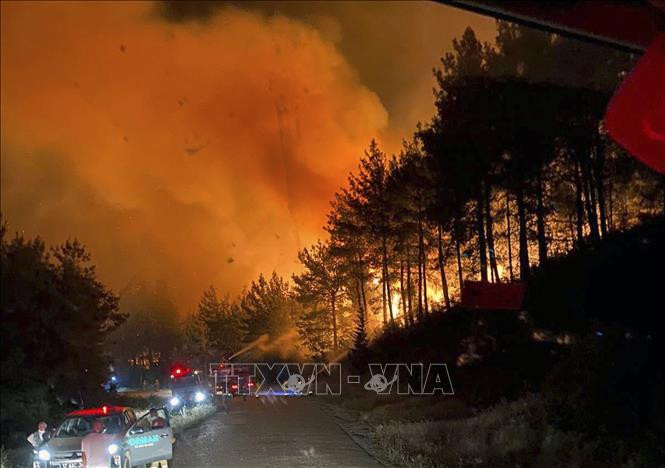The frequency and intensity of catastrophic wildfires have more than doubled worldwide over the past two decades, largely due to human activities that are causing global warming.

The study was published in the scientific journal Nature Ecology & Evolution on June 24.
This is the first time scientists have pointed out an increasing trend of forest fires around the world - natural disasters that cause heavy damage to national economies as well as to the natural environment and human livelihoods.
To conduct the study, scientists used satellite data on nearly 3,000 extreme heat-releasing wildfires between 2003 and 2023. Analysis of the data showed that the number of such wildfires increased 2.2-fold over the two decades. In addition, scientists found that the intensity of the 20 most catastrophic wildfires each year also more than doubled during the study period, suggesting that the severity appears to be increasing rapidly.
According to Mr. Calum Cunningham - head of the research team and from the University of Tasmania (Australia), the increase in the number of catastrophic forest fires is a matter of concern. Mr. Cunningham said that the impact of climate change is increasingly evident as the world is witnessing hot and dry conditions.
The study also found that the period 2017-2023 saw the most severe wildfires, in terms of frequency and intensity, with 2023 being the year with the most catastrophic wildfire intensity.
Compared to other parts of the world, regions such as North America, northern Eurasia and Australia have seen a sharp increase in severe wildfires. For example, temperate coniferous forests in the western United States have seen an 11-fold increase in severe wildfires over the past two decades. Fires in the forests that cover the Earth’s Arctic, including Alaska, Canada and Russia, have increased more than sevenfold.
Increased droughts due to climate change are leading to more large-scale wildfires. Because forests absorb CO2 from the atmosphere, the loss of trees to fires releases that CO2 back into the atmosphere, further increasing global warming. The study highlights the urgency for countries to take steps to adapt to climate conditions that cause extreme wildfires. Cunningham says the immediate solutions are local-level forest management and efforts to prevent large-scale wildfires from occurring.